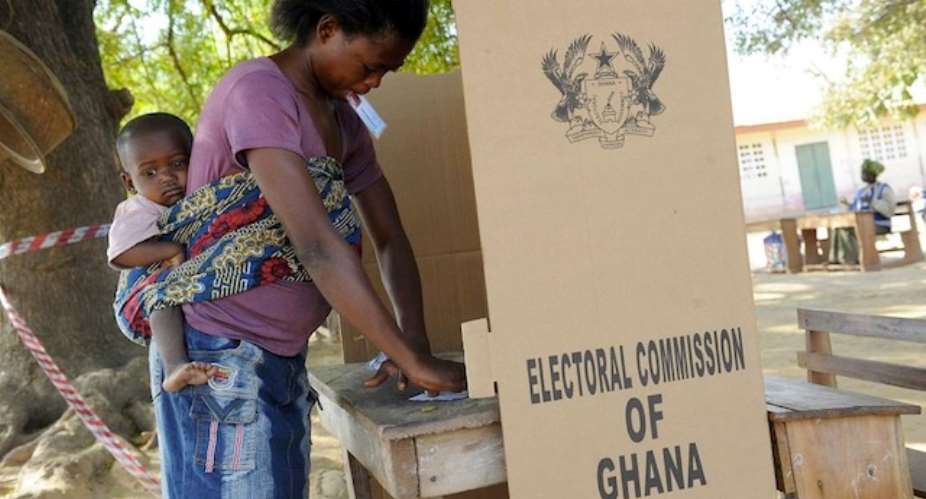Election 2020 is approaching like wild fire.
Are the police ready?
Typically, police are responsible for maintaining public order and safety. However, they also have four major responsibilities to prosecute. Namely, enforcing laws, preventing crimes, responding to emergencies and providing support services.
Suffice to say in Ghana, the actions and inactions by some political parties before, during and after elections, perhaps make policing more difficult in our part of the world. Indeed, aside the skirmishes and demonstrations here and there (Ayawaso Wuogon in mind). There's also suspicion about everything.
It therefore came as no surprise to me, when the police chief yesterday convened a maiden meeting with major political players in the country.
Inspector General of Police (IGP) James Oppong Boanuh at that meeting told politicians to go to court and seek redress regarding electoral grievances, rather than traffic the corridors of his outfit. He said the police headquarters wouldn't entertain that, and he urged political parties to follow legal procedures.
"You've no business to come to the police headquarters, saying you want to present a petition to the IGP. Follow legal processes in seeking redress in electoral grievances," he advised.
Sounds like the man has got fire in his belly.
Mr. Boanuh conveyed such element on Wednesday 1, July 2020 when he met with reps of political parties in Accra to discuss some pertinent issues relating to the upcoming general elections and the role of everyone in ensuring peace before, during and after the elections.
The meeting also focused on political parties' demonstrations which are often wrought by controversies amid suspicions and mistrust.
What did William Shakespeare say?
"Suspicion always haunt a guilty mind."
But who is to blame?
The police or the politicians?
The police boss pointed out, one area of concern had to do with demonstrations. "Those are the greater dialogue area and therefore individual parties are urged to follow procedures outlined in the public order Act 1994 Act 491 in order to avoid unnecessary confrontation with the police," he said.
According to him the police had had confrontations in the past with political parties partly due to the fact that the latter often don't include which particular routes the parties want to access during protestations.
"..If you want that to be part of the route then put it on the table and we can discuss it."
Mr. Boanuh warned that his outfit will not countenance any form of political taskforce in the upcoming December 7th general elections. And further advised political parties to discourage supporters from massing up at police stations when individuals are invited for investigation.
In all, 14 out of the 25 political parties attended the maiden meeting ahead of the December polls.
It is understood that the reduction in the numbers was in accordance with the COVID-19 protocols of social gatherings.
The six paged speech by the inspector general of police touched on verbal utterances by party spokespersons, criminal use of social media, mass stampeding of police investigations, use of political taskforce, and covid 19 impacts. He also spoke about peace and security.
Representatives of the various parties praised the move taken by the IGP and pledged their support to peace. Also, they called for regular engagements with the police to help deepen the peace.
Of course there are more questions than answers:
Questions that would have to do with integrity, impartiality, motive, suspicion and what have you.
Would the players remain committed to their pledges ?
Would they not undermine the police?
And wouldn't they turnaround tomorrow and accuse the police of being bias? Would the IGP remain resolute and not allow his outfit to be pawned?
It remains to be observed.
By Gordon Offin-Amaniampong





 Minority will expose the beneficial owners of SML, recover funds paid to company...
Minority will expose the beneficial owners of SML, recover funds paid to company...
 Prof. Opoku-Agyemang has ‘decapitated’ the NPP’s strategies; don’t take them ser...
Prof. Opoku-Agyemang has ‘decapitated’ the NPP’s strategies; don’t take them ser...
 Abubakar Tahiru: Ghanaian environmental activist sets world record by hugging 1,...
Abubakar Tahiru: Ghanaian environmental activist sets world record by hugging 1,...
 Prof. Naana Opoku-Agyemang will serve you with dignity, courage, and integrity a...
Prof. Naana Opoku-Agyemang will serve you with dignity, courage, and integrity a...
 Rectify salary anomalies to reduce tension and possible strike action in public ...
Rectify salary anomalies to reduce tension and possible strike action in public ...
 Stop all projects and fix ‘dumsor’ — Professor Charles Marfo to Akufo-Addo
Stop all projects and fix ‘dumsor’ — Professor Charles Marfo to Akufo-Addo
 Blue and white painted schools will attract dirt shortly – Kofi Asare
Blue and white painted schools will attract dirt shortly – Kofi Asare
 I endorse cost-sharing for free SHS, we should prioritise to know who can pay - ...
I endorse cost-sharing for free SHS, we should prioritise to know who can pay - ...
 See the four arsonists who petrol-bombed Labone-based CMG
See the four arsonists who petrol-bombed Labone-based CMG
 Mahama coming back because Akufo-Addo has failed, he hasn't performed more than ...
Mahama coming back because Akufo-Addo has failed, he hasn't performed more than ...
